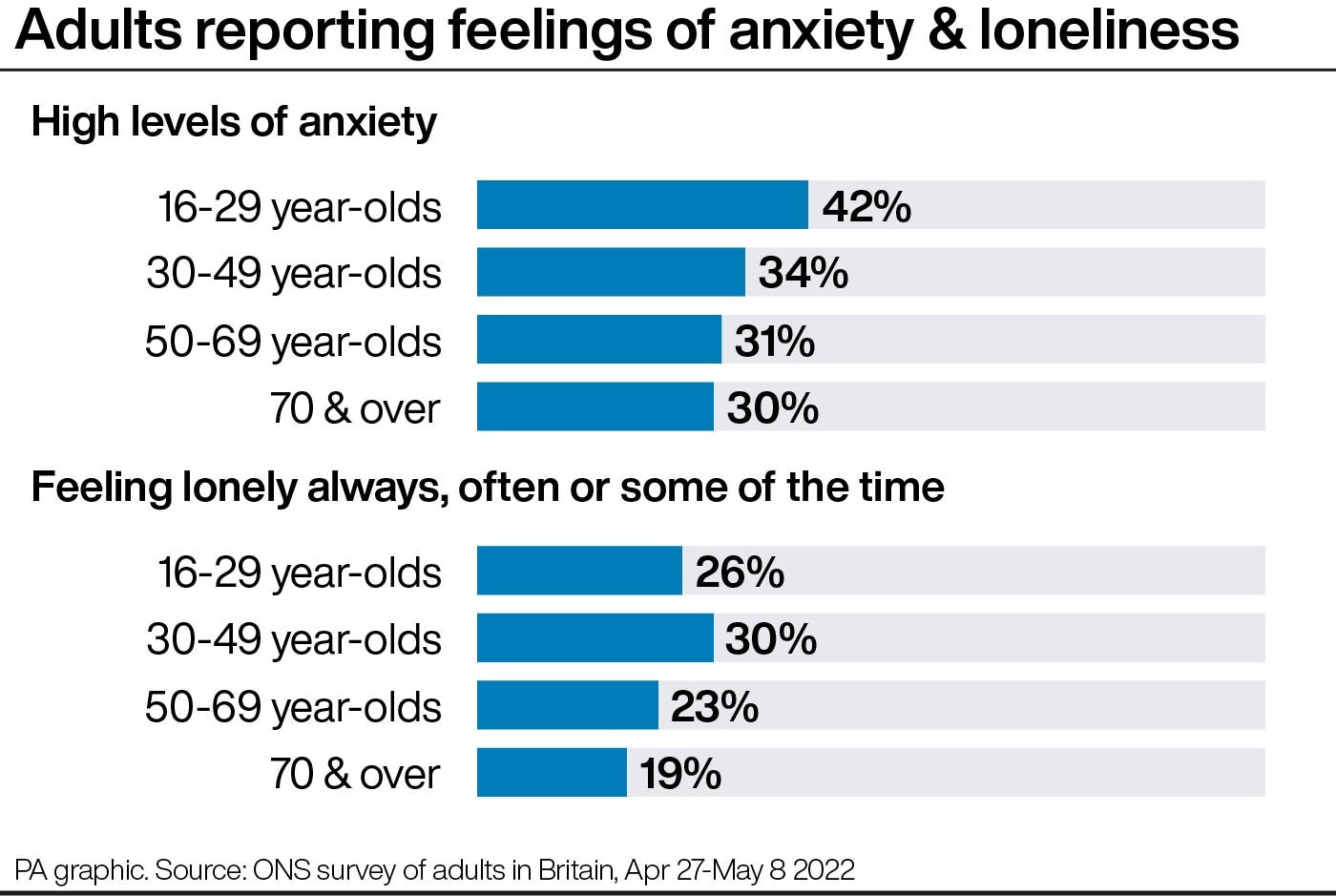
Anxiety levels among young adults have risen in recent weeks and are higher than any other age group, a new survey suggests.
Around four in 10 (42%) of 16 to 29-year-olds questioned at the start of this month said they experienced high levels of anxiety, up from just over a third (35%) in early April.
The figure is some way above other age groups, with 34% of 30 to 49-year-olds reporting high anxiety in the latest period, along with 31% of 50 to 69-year-olds and 30% of people aged 70 and over.

The findings have been published by the Office for National Statistics (ONS) to coincide with Mental Health Awareness Week.
They show that larger proportions of younger adults often report high anxiety, though rarely on the scale seen in the latest data.
The figure of 42%, which is based on responses collected between April 27 and May 8, has been equalled only once this year, in early February.
The last time it was higher came at the end of 2021, when 44% of 16 to 29-year-olds said they experienced high anxiety – a period coinciding with the first surge in Covid-19 infections caused by the Omicron variant.
When asked the question “How anxious did you feel yesterday?” on a scale of 0 to 10, where 0 is “not at all” and 10 is “completely”, the average score for people aged 16 to 29 in the latest survey was 4.9.
This is up from 4.1 at the end of March, and is higher than at any point since the start of the pandemic.
The ONS also asked questions about loneliness, with a quarter of all adults (25%) in the latest survey saying they felt lonely always, often or some of the time.
This is up slightly from the previous survey in mid-April (23%) but is broadly unchanged on recent months.
The proportion of people reporting feeling of loneliness varies slightly by age, the ONS found.
The highest percentage is among 30 to 49-year-olds (30%), followed by 16 to 29-year-olds (26%), 50 to 69-year-olds (23%) and over-70s (19%).
All figures are based on a survey of adults in Britain.







